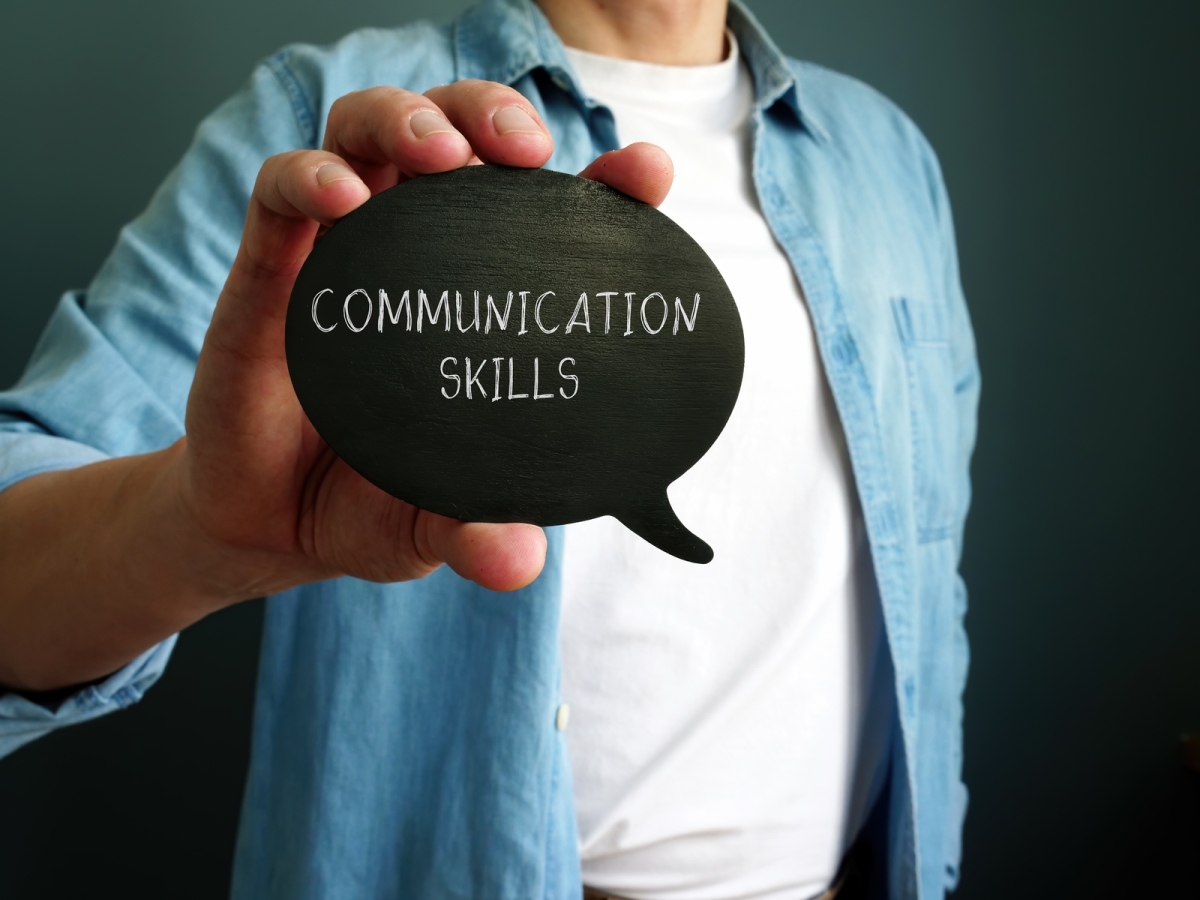In the dynamic landscape of today’s professional world, effective leadership is more critical than ever. Leaders guide teams through challenges, inspire innovation, and shape the future of organizations. This article delves into the best leadership skills to learn, their benefits, methods to build them, and situations where they are most effectively applied.
What are Leadership Skills?
Leadership skills are the abilities and competencies that enable an individual to influence, guide, and direct others towards achieving specific goals. These skills are crucial for anyone in a position of leadership, whether in a corporate setting, a community group, an educational institution, or any other environment where teamwork and coordination are key. Leadership skills encompass a wide range of behaviors and practices, and they can be developed and honed over time. Here are some key aspects of leadership skills:
- Communication: The ability to convey information and ideas effectively is fundamental in leadership. This includes not only speaking and writing clearly but also listening actively and empathetically.
- Motivation: Inspiring and encouraging others to engage in the work and to contribute their best effort is a vital leadership skill. This involves understanding what drives individuals and creating an environment where they feel valued and fulfilled.
- Delegation: Effective leaders know how to delegate tasks appropriately, trusting their team members with responsibilities while providing guidance and support. This allows leaders to focus on strategic planning and gives team members opportunities for growth and development.
- Problem Solving and Decision Making: Leaders often need to make timely decisions and solve problems efficiently. This requires analytical thinking, creativity, and the ability to weigh the consequences of different courses of action.
- Conflict Resolution: The ability to address disputes and disagreements in a constructive manner is important for maintaining a harmonious and productive team environment.
- Emotional Intelligence: This refers to the capacity to be aware of and manage one’s own emotions, as well as to understand and influence the emotions of others. Emotional intelligence is key in building and maintaining strong, healthy working relationships.
- Adaptability and Flexibility: The business and organizational landscapes are constantly changing, so being able to adapt to new situations and challenges is essential for effective leadership.
- Vision and Strategic Planning: A leader should have a clear vision for the future and the ability to strategize how to get there. This involves setting goals, planning, and foreseeing potential obstacles and opportunities.
- Integrity and Ethics: Leaders should demonstrate reliability, honesty, and ethical behavior, setting a standard for their team and ensuring trust and respect in their leadership.
- Team Building: The ability to create, nurture, and maintain a strong team is crucial. This involves understanding team dynamics, recognizing and utilizing the strengths of different team members, and fostering a collaborative and inclusive environment.
Leadership skills are not inherent; they can be developed and refined through experience, education, training, and reflection. Effective leaders are often lifelong learners, constantly seeking to improve their skills and adapt to new challenges and environments.
Know Your Leadership Style
Knowing your leadership style is crucial as it defines how you manage teams, make decisions, and address challenges. Understanding your style can help you leverage your strengths and identify areas for improvement. Here are common leadership styles and how you can determine which one aligns with your approach:
Common Leadership Styles:
- Authoritarian or Autocratic: This style is characterized by individual control over decisions with little input from team members. Autocratic leaders typically make choices based on their judgments and ideas and rarely accept advice from followers.
- Democratic or Participative: Leaders in this category encourage team participation in decision-making. They value the input of team members and peers but retain the final say in the decision-making process.
- Laissez-Faire or Delegative: In this style, leaders offer little or no guidance to team members and leave decision-making up to group members. This can be effective when team members are highly skilled and motivated.
- Transformational: These leaders constantly push their teams towards innovation and change. They are focused on big-picture goals, motivating their team through a shared vision and fostering an environment of innovation.
- Transactional: This style is based on the concept of reward and punishment. Transactional leaders are focused on performance, are highly structured, and expect their team to follow established procedures meticulously.
- Servant Leadership: The primary goal of a servant leader is to serve their team. They focus on the growth and well-being of their team members and the communities to which they belong.
- Situational Leadership: Leaders adopting this style adapt their approach based on the situation. They are flexible and considerate of their team’s abilities and the task’s complexity.
Identifying Your Leadership Style:
- Self-Assessment: Reflect on your past leadership experiences. Consider how you’ve handled decision-making, conflict, and team management. Think about feedback you’ve received from peers, superiors, or team members.
- Feedback from Others: Ask colleagues, mentors, or team members for feedback on your leadership style. Understanding how others perceive your approach can provide valuable insights.
- Personality Tests: Consider taking leadership or personality assessments, like the Myers-Briggs Type Indicator or the DISC assessment. These can provide insights into your natural leadership tendencies.
- Professional Development Workshops: Participate in leadership workshops or training sessions. These can offer a structured way to learn about different styles and see which resonates with you.
- Evaluate Your Values and Beliefs: Your personal values and beliefs play a significant role in shaping your leadership style. Reflect on these and how they align with your leadership approach.
- Adaptability: Recognize that your style might change depending on the context. Being adaptable and open to changing your style as needed is a strength.
Knowing your leadership style isn’t just about putting a label on how you lead. It’s about understanding your natural tendencies, how they affect your team, and how you can adapt your style to be more effective in different situations. It’s also a continuous process of learning and adaptation, as effective leadership often requires a blend of styles depending on the context and people involved.
Top 10 leadership skills that make a good leader
1. Effective Communication
How to Build: To enhance communication skills, engage in active listening, practice public speaking, and learn to tailor your message to your audience. Participate in workshops or join groups like Toastmasters to refine these skills.
Benefits: Clear communication prevents misunderstandings, ensures everyone is on the same page, and fosters a more cohesive work environment. It also enhances your ability to persuade and motivate.
When to Use: Effective communication is essential in all aspects of leadership, particularly during project kick-offs, strategy meetings, and when providing feedback.
2. Empathy and Emotional Intelligence
How to Build: Develop empathy by actively listening to your team members, showing genuine interest in their concerns, and being open to their perspectives. Emotional intelligence can be enhanced through self-reflection, mindfulness practices, and empathy training.
Benefits: Empathetic leaders build trust and respect, leading to higher employee satisfaction and retention. It also helps in understanding and managing your own emotions and those of others.
When to Use: Use empathy during conflict resolution, performance reviews, or when addressing team challenges.
3. Decision-Making
How to Build: Improve decision-making skills by analyzing past decisions, learning from mistakes, and staying informed about best practices. Critical thinking exercises and decision-making frameworks can also be beneficial.
Benefits: Good decision-making leads to better outcomes, saves time, and increases the team’s confidence in your leadership.
When to Use: Decision-making is crucial during crises, when facing tight deadlines, or when strategic changes are needed.
4. Delegation
How to Build: Learn to delegate by understanding your team’s strengths and weaknesses, trusting them to handle responsibilities, and providing clear instructions and resources.
Benefits: Delegation frees up your time for strategic planning, reduces burnout, and empowers team members, enhancing their skills and job satisfaction.
When to Use: Delegate tasks during high workload periods, complex projects, or when specific team members’ skills match the task requirements.
5. Adaptability and Flexibility
How to Build: To become more adaptable, expose yourself to new experiences, be open to change, and develop a growth mindset. Flexibility can be improved through scenario planning and stress management techniques.
Benefits: Adaptability allows leaders to navigate changes smoothly, seize opportunities, and mitigate risks effectively.
When to Use: These skills are crucial during times of organizational change, market shifts, or unexpected challenges.
6. Problem-Solving
How to Build: Enhance problem-solving skills by engaging in brainstorming sessions, learning various problem-solving techniques, and seeking diverse perspectives.
Benefits: Effective problem-solving leads to innovative solutions, improved processes, and can significantly reduce costs and time.
When to Use: Apply problem-solving in crisis management, when optimizing workflows, or when tackling inefficiencies.
7. Integrity and Ethics
How to Build: Cultivate integrity by consistently practicing honesty, ethical decision-making, and standing up
for your values. Seek feedback on your actions and decisions to ensure they align with ethical standards.
Benefits: Integrity builds trust within your team and with stakeholders, creates a positive work culture, and enhances your reputation as a leader.
When to Use: Integrity is fundamental in all aspects of leadership, especially during ethical dilemmas, negotiations, and when setting organizational policies.
8. Vision and Strategic Thinking
How to Build: Develop vision and strategic thinking by staying informed about industry trends, setting clear long-term goals, and regularly engaging in strategic planning exercises.
Benefits: A clear vision guides decision-making, inspires and motivates the team, and ensures long-term success. Strategic thinking helps in anticipating future challenges and opportunities.
When to Use: Vision and strategic thinking are essential during business planning, setting company direction, and when adapting to market changes.
9. Motivation
How to Build: Learn motivational techniques such as recognizing achievements, understanding individual motivators, and setting challenging but achievable goals. Leadership training and psychology courses can provide deeper insights into motivation.
Benefits: Motivating your team leads to higher productivity, better morale, and increased creativity.
When to Use: Motivation is key when starting new projects, after setbacks, or when trying to achieve challenging objectives.
10. Conflict Resolution
How to Build: Develop conflict resolution skills through mediation training, learning active listening techniques, and practicing empathy. Understanding different conflict resolution styles is also beneficial.
Benefits: Effective conflict resolution maintains a harmonious work environment, strengthens relationships, and prevents issues from escalating.
When to Use: Apply these skills in resolving team disagreements, addressing interpersonal conflicts, or managing customer complaints.
What makes an effective leader and how can you become one?
An effective leader is someone who not only manages and directs a group towards achieving certain goals but also inspires, motivates, and positively influences the people around them. To become an effective leader, it’s important to develop a blend of skills and attributes:
Key Characteristics of an Effective Leader:
- Vision: Effective leaders have a clear vision of what they want to achieve. They can set goals, plan strategically, and communicate their vision to others in a way that inspires and motivates.
- Empathy and Emotional Intelligence: Understanding and relating to the emotions of others is crucial. An empathetic leader can build strong relationships, foster trust, and create a supportive and collaborative work environment.
- Communication Skills: Being able to clearly and effectively communicate ideas, expectations, and feedback is essential. This also includes listening skills, ensuring open and honest two-way communication.
- Integrity: A leader with integrity acts ethically, consistently, and honestly, setting a moral example for their team and earning their trust and respect.
- Decisiveness: Effective leaders make timely decisions by assessing available information, consulting with team members, and weighing the potential risks and benefits.
- Adaptability: The ability to adapt to changes and challenges is vital in the ever-evolving landscape of any field. This requires flexibility, openness to new ideas, and a willingness to adjust strategies as needed.
- Confidence: A confident leader can inspire confidence in others, making the team feel secure in their direction and decisions.
- Ability to Delegate: Recognizing the strengths of team members and delegating tasks accordingly can lead to more efficient and effective outcomes.
- Problem-Solving Skills: Leaders often face complex problems and need to be able to think critically and creatively to find solutions.
- Motivational Skills: Being able to motivate and encourage team members, especially during challenging times, is a key aspect of effective leadership.
How to Become an Effective Leader:
- Self-Reflection: Regularly reflect on your leadership style, strengths, and areas for improvement. Seek feedback from peers, mentors, and team members.
- Education and Training: Consider formal education or training programs in leadership, management, communication, and other relevant areas.
- Mentorship: Seek out mentors who can provide guidance, advice, and feedback based on their own experiences.
- Experience: Take on leadership roles, even small ones, to gain experience. This could be in a professional setting, volunteer organizations, clubs, or groups.
- Continuous Learning: Stay informed about best practices in leadership and management, and be open to learning from both successes and failures.
- Building Emotional Intelligence: Work on developing empathy, self-awareness, and social skills. This can be through reading, workshops, or even therapy and coaching.
- Networking: Connect with other leaders and professionals to exchange ideas, experiences, and advice.
- Practice Resilience: Develop your ability to cope with setbacks and challenges, maintaining a positive attitude and a focus on long-term goals.
Becoming an effective leader is a journey that involves continuous growth and learning. It’s about combining personal attributes with learned skills, and always striving to better oneself and positively
Conclusion
Leadership is not a one-size-fits-all skillset; it requires a blend of various abilities tailored to different situations. By focusing on building and applying these key skills, leaders can create a positive impact, driving their teams and organizations towards success. Continuous learning and self-improvement are essential in this journey, as the landscape of leadership continually evolves. Embracing these skills will not only make you a better leader but also enrich your personal growth and professional development.




















